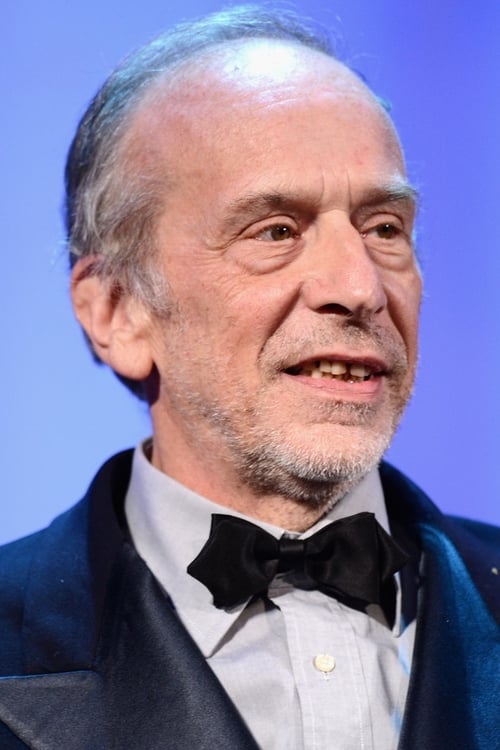
Director of Photography
Three siblings comprise the latest generation in a family of puppeteers led with passion by their father. They are magicians of a kind, but can barely make ends meet, working mainly for the love of their craft. Their grandmother contributes too, not only as a seamstress but also as a repository of memories and wisdom. A tragic event will challenge the desire of each sibling to carry on.

Self
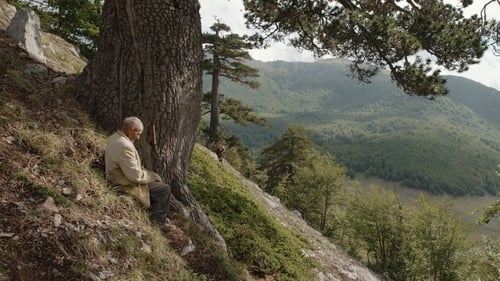
Director of Photography
Durante o boom econômico da década de 1960, o edifício mais alto da Europa está sendo construído no próspero norte da Itália. Do outro lado do país, jovens espeleólogos exploram a caverna mais profunda da Europa no intocado interior da Calábria. O fundo do Abismo Bifurto, 700 metros abaixo da Terra, é alcançado pela primeira vez. A aventura dos intrusos passa despercebida pelos habitantes de uma pequena aldeia vizinha, mas não pelo velho pastor do planalto de Pollino, cuja vida solitária começa a se entrelaçar com a jornada do grupo.
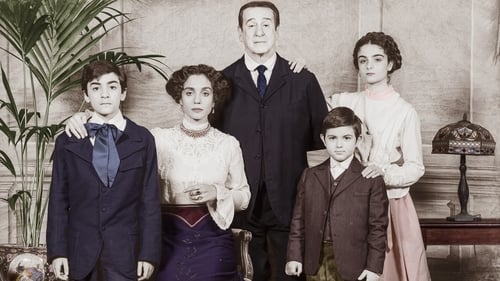
Director of Photography
O filme conta a história de Eduardo Scarpetta (Toni Servillo), uma lenda da comédia italiana. Tudo muda na vida do humorista quando ele encena uma paródia de La figlia di Iorio, uma tragédia escrita pelo maior poeta italiano da época, Gabriele D’Annunzio. Após a apresentação ser interrompida por vaias e assobios, Scarpetta acaba sendo processada por plágio pelo próprio D’Annunzio, sendo a primeira ação judicial sobre direitos autorais na Itália. Inspirado em acontecimentos reais.
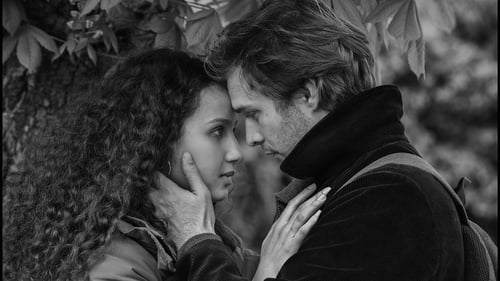
Director of Photography
O Sal das Lágrimas é um drama de 2020 dirigido por Philippe Garrel. É estrelado por Logann Antuofermo, Oulaya Amamra, Louise Chevillotte, Souheila Yacoub e André Wilms. Conta a história de um jovem que se apaixona por três mulheres

Director of Photography
"The word 'revolution' to us Frenchmen is not a vague term. We know that Revolution is a rupture, that Revolution is an Absolute. There is no such thing as a moderate revolution, there is no such thing as a planned revolution—as one speaks of a planned economy. The revolution we are announcing will overturn the entire existing order or it will not take place at all..."
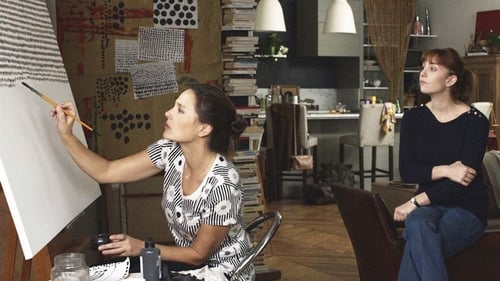
Director of Photography
Uma mulher de 27 anos sonha com um futuro como escritora, mas é atormentada pela dúvida e pela incerteza. Ela se muda para Paris onde algo mágico acontece e acaba se conectando com um misantropo de 76 anos, que dirige uma livraria. Porém, quando um segredo do homem é revelado, a relação deles pode se tornar algo muito distinto.
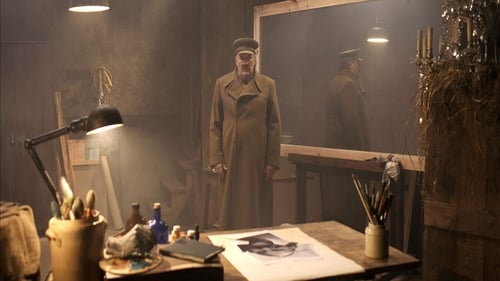
Director of Photography
Estaline vem descansar três dias num palacete no meio da floresta. Acompanha-o a sua amante de longa data, Lidia. No escritório onde ele dorme, há um sofá parecido com o de Freud em Londres. À noite, propõe a Lidia jogarem o jogo da psicanálise. Durante o dia, um jovem pintor, Danilov, espera ser recebido por Estaline para lhe apresentar o monumento que concebeu para a sua glória. Gera-se entre os três uma ligação perturbada, perigosa e perversa. O desafio é sobreviver ao medo e à traição.
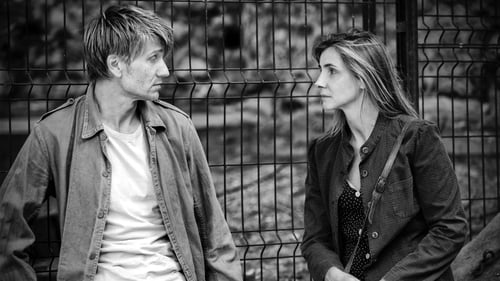
Director of Photography
Pierre e Manon são pobres. Eles fazem documentários sem nada e vivem de trabalhos aleatórios. Pierre conhece uma jovem estagiária, Elisabeth, e ela se torna sua amante. Mas Pierre não vai deixar Manon por Elisabeth; ele quer manter ambas as mulheres.
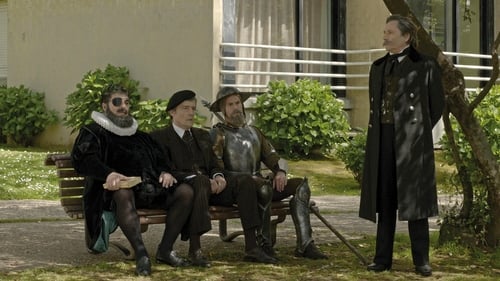
Director of Photography
Don Quixote, Luís de Camões, Camilo Castelo Branco and Teixeira de Pascoaes meet in an eternal garden in the middle of a modern city and talk about life.
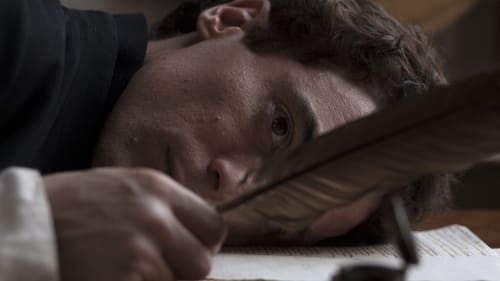
Director of Photography
Leopardi (o poeta italiano Giacomo Leopardi) é uma criança-prodígio, a crescer sob o olhar implacavelmente vigilante do seu pai, numa biblioteca a que chama casa. A sua mente corre livre mas a vida familiar aprisiona-o: é um leitor ávido mas o mundo está longe. Na Europa, está tudo a mudar, revoluções emergem e Giacomo procura desesperadamente o contacto com o exterior. Aos 24 anos, deixa finalmente Recanati e a alta sociedade abre-lhe as portas, mas o nosso rebelde não se adapta.

Self
Davide Pozzi, who oversaw the delicate process of scanning the original camera negative, discusses the restoration of Alain Resnais' 1959 film HIROSHIMA MON AMOUR with cinematographer Renato Berta, a special consultant on the project.

Director of Photography
The film is about the failure of (Abu Afif) grandfather of the child (Karim) who owns an old-fashioned property, with the end of the civil war and the passage of days becomes Karim young and immigrants with the timing of the reconstruction of Beirut, Karim finds in that project hope to restore paint and restoration of the structure inherited About his grandfather. It collides with the rehabilitation project when it is discovered that the building is owned by a real estate company in order to establish its place of the Dream Tower. The company succeeds in owning some floors and the building renovation project is stopped for the second time. In the meantime, Karim meets Maya, and they experience a swaying love story in tandem with the problem of demolishing or restoring and preserving the building.

Cinematography
The film intertwines historical events and intimate memories. I observe how architecture represents the transformations of society and those who give form to this architecture. We follow the journey of Munio, my father, born in 1909 in Silesia, Poland, the son of a tenant farmer of a Prussian junker. At the age of 18, Munio goes to Berlin and Dessau to meet Walter Gropius, Kandinsky and Paul Klee at the Bauhaus. In 1933, the Bauhaus was closed by the Nazis, who accused Munio of treason against the German people. Munio was imprisoned, then deported to Basel. He left for Palestine. Upon his arrival in Haifa, he began a career as an architect and adapted European modernist principles to the Middle East.

Self

Director of Photography
Apesar da idade e do cansaço, Gebo persegue a sua actividade de contabilista para sustentar a família. Vive com a mulher, Doroteia, e a nora, Sofia, mas é a ausência do filho, João, que os preocupa.
Gebo parece esconder algo em relação a isso, em particular a Doroteia, que vive na espera ansiosa de rever o seu filho. Sofia, do seu lado, espera também o regresso do marido, ao mesmo tempo que o teme. Subitamente João reaparece e tudo muda.

Director of Photography
Un couple se dirige vers un train en partance pour Venise. Sur le quai, Julien annonce à Marie qu’il part en rejoindre une autre et s’en va, la laissant seule à Paris, enceinte. Bouleversée, Marie se refuse à être victime de cette situation. Elle trouve du réconfort dans son travail auprès de ses deux « cow-boys » de patrons, Jean-Jacques et Jean-Loup, qui dirigent un cinéma du quartier latin spécialisé dans les films classiques américains…
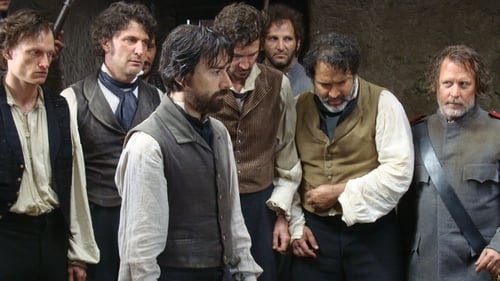
Director of Photography
1828. In the wake of the repression of revolutionary movements in Southern Italy, three young friends join Giuseppe Mazzini's republican and unificationist cause. Their idealism will clash with the inevitable disillusionment as they grow apart over the decades.
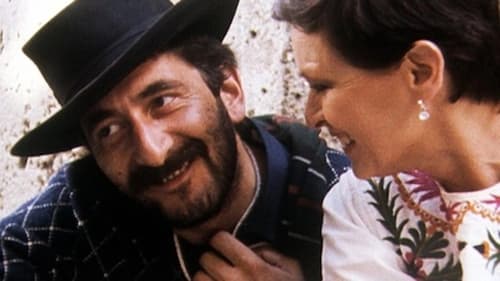
Self
When director Daniel Schmid grew up, his parents ran a hotel in the Alps, and this singular setting was to influence his film. Rather by coincidence he came to Berlin in the early 1960s and became part of the new German wave. Schmid worked with, among others, Wenders and Fassbinder, for example as an actor in Wender’s The American Friend. He met Ingrid Caven, who was to play a diva in several of his films. This is a documentation of a part of modern European film history and a good analysis of artistry and how it corresponds to the individual behind the camera. A wealth of archival footage brings us close to many directors and actors in Schmid’s circle. If you’ve never seen a Daniel Schmid film, you are sure to want to after watching this portrait of his life.

In the summer of 1986, Danièle Huillet and Jean-Marie Straub were working in the park of an old Sicilian mansion and in a clearing at the foot of Mount Etna shooting Der Tod des Empedokles. Assistant cameraman Jean-Paul Toraille toyed around, so to speak, with his first video camera, filming the daily work on the set. Now, 24 years later, he was joined by Jean-Marie Straub in editing the material into a film. Anyone who expected the shooting of Les Avatars de la mort d’Empédocle to be an austere affair, an exercise entirely devoid of humour or a Straubian tour de force is proven wrong: so much lightness, joy, concentration, spells of waiting for the sun to come out – and even proper slapstick in between – is hard to find.
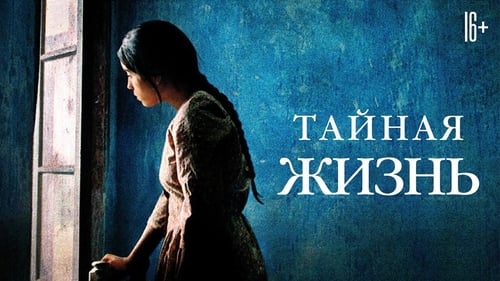
Director of Photography
A teenager unwittingly reveals a terrible family secret to her new neighbors.

Director of Photography
Jean-Marie Straub's first film after the death of Danièlle Huillet is a love poem to her. Le Genou d'Artémide is based on Cesare Pavese's "Dialogues of Leuco", which had already been adapted by Straub et Huillet as Ces Rencontres Avec Eux (2006).

Director of Photography
These Encounters Of Theirs divides 10 non-professional actors into couples, then has them take turns in declaiming the Dialogues With Leuco, Cesare Pavese's abstract, philosophical work.
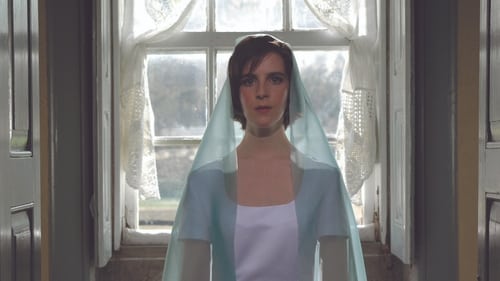
Director of Photography
Luciano, fresh out of jail, was taken by his brother, Flórido, to serve in the home of wealthy Alfreda. He was surprised when she told him that her greatest desire was to see the Virgin Mary. Now comes this rich land owner with her sublime pretensions. Isn't it enough for her to have an Aston Martin and a Jaguar in the garage and ten different dresses per season? It was all professor Heschel's fault. Or someone else's. Anyway, to go beyond the promise is heresy. Alfreda said that she wouldn't rest until she saw the Virgin and made her some questions. Filipe Quinta, the Forger, says he has a solution. Meanwhile, Bahia, her husband, listens do music.

Director of Photography
A young journalist (Lespert) helps the French President compile his memoirs.

Director of Photography
A visit to the Louvre in Paris commentated by an actor reading Cézanne.

Director of Photography
Este, para quem só há felicidade conjugal quando se é o primeiro marido da mulher, é escrupulosamente mantido na ignorância do casamento com Eric Thomson. Só a irmã de Gilberte, Arlette Poumaillac, ainda solteira, conhece o segredo. Mas o que aconteceria se, por pura coincidência, Georges Valandray iniciasse uma relação de negócios com Eric Thomson e ficassem amigos?

Cinematography
In Italy, immediately subsequent to the war, a group of people who lost all they possessed during the conflict, settle in a village in ruins. They intend to restore the city from the rubble and re-start life, in imitation of the women of Messina who rebuilt their city, destroyed as it was by an earthquake. Oscillating between respect and suspicion, co-existence between group members is tense. Things become complicated when an envoy from the government arrives to say that nothing there belongs to them. The film is a free adaptation of fragments of the novella ‘The Women of Messina’, by Sicilian writer Elio Vittorini.

Cinematography
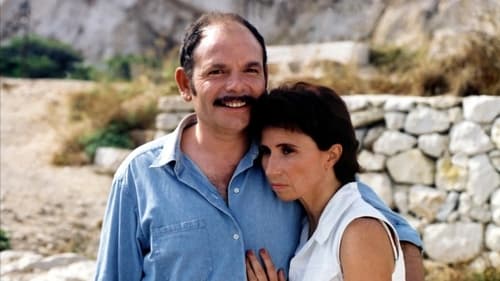
Director of Photography
Marie-Jo and Her Two Lovers (French: Marie-Jo et ses deux amours) is a 2002 French drama film directed by Robert Guédiguian. It was entered into the 2002 Cannes Film Festival.

Director of Photography
Having lost her place among the social elite, a widow remarries and starts a family.

Director of Photography
A group of men and women have been brought together after World War II, when Italy regained its national and territorial unity. They make up a primitive community which seeks to erase not only the distress created by the war but also the hardships of life, and look to protect themselves from violence, misery and fear. Amid the ruins of this post-war period, these men and women build a new rapport between themselves, between sexes, between generations, between social and geographical origins, between political camps.

Director of Photography
In 1939, Kalman, an ambitious young businessman, leaves Europe to join his sister Samantha in Palestine. She lives with Dov, an idealistic architect obsessed with the Bauhaus style. With their friends, they form a group, which discusses the future Israeli State.

Director of Photography
Em 1663, o Padre António Vieira é chamado a Coimbra para comparecer diante do Tribunal do Santo Ofício, a terrível Inquisição. As intrigas da corte e uma desgraça passageira enfraquecem a sua posição de célebre pregador jesuíta e amigo íntimo do falecido rei D. João VI. Perante os juizes, o Pade António Vieira revê o seu passado: a juventude no Brasil e os anos de noviciado na Bahia, a sua ligação à causa dos índios e os seus primeiros sucessos no púlpito.
Impedido de falar pela Inquisição, o pregador refugia-se em Roma, onde a sua reputação e êxito são tão grandes que o Papa concorda em não o retirar da sua jurisdição. Mas as saudades do seu país são mais fortes e Vieira regressa a Portugal. Só que a frieza do acolhimento do novo rei, D. Pedro, fazem-no partir de novo para o Brasil onde passa os últimos anos da sua vida.
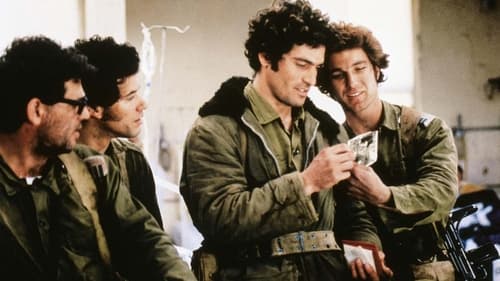
Director of Photography
The film takes place in 1973 during the Yom Kippur War in which Egypt and Syria launched attacks in Sinai and the Golan Heights. The story is told from the perspective of Israeli soldiers. We are led by Weinraub and his friend Ruso on a day that begins with quiet city streets, but ends with death, destruction and devastation of both body and mind. Various scenes are awash in the surreal, as Weinraub's head hangs out over a rescue helicopter's open door, watching with tranquil desperation as the earth passes beneath, the overpowering whir of the blades creating a hypnotic state. It is not a traditional blood, guts and glory film. There are no men in battle, only the rescue crew trying to pick up the broken pieces.
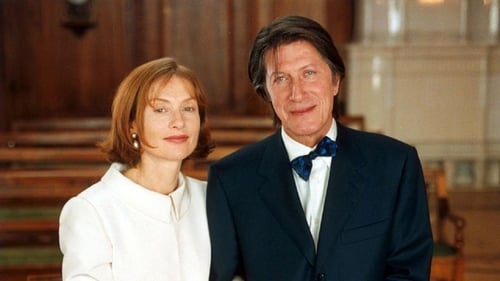
Director of Photography
Mika is the wife of celebrated pianist Andre Polonski and stepmother to his son, Guillaume, whose mother died in a car wreck on his sixth birthday. Their lives are interrupted by the unexpected arrival of Jeanne, a young woman who has learned that she was almost switched at birth with Guillaume whilst in hospital. Also a pianist, Jeanne harbors a suspicion that she may be Andre's daughter. Andre undertakes to continue her piano tuition, but, on entering the Polonski family, Jeanne begins to notice the icily controlled Mika behaving strangely. Her suspicions aroused, Jeanne begins the dangerous task of unraveling Mika's dark past of secrets and lies...

Director of Photography
A naive girl's love for Switzerland is put to the test in this satiric comedy. Irina is a woman from Russia who all her life has always been fascinated by Switzerland and longs to live there some day, though her notion of Swiss life has more to do with Heidi and old movies set in the Alps than reality.
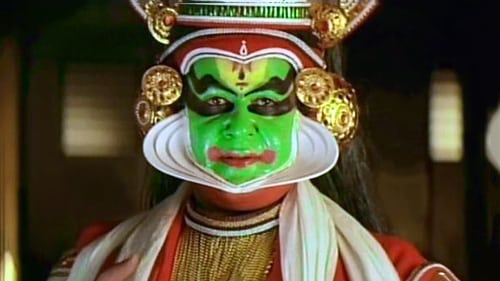
Director of Photography
Kunhikuttan, a famous Kathakali dancer, meets Subhadra, a woman from an upper caste family, who falls in love with his character rather than himself.
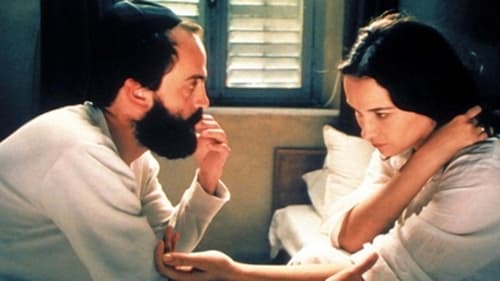
Director of Photography
The year 2000 approaches in Jerusalem's Orthodox Mea Shearim quarter, where the women work, keep house, and have children so the men can study the Torah and the Talmud. Rivka is happily and passionately married to Meir, but they remain childless. The yeshiva's rabbi, who is Meir's father, wants Meir to divorce Rivka: "a barren woman is no woman." Rivka's sister, Malka, is in love with Yakov, a Jew shunned by the yeshiva as too secular. The rabbi arranges Malka's marriage to Yossef, whose agitation when fulfilling religious duties approaches the grotesque. Can the sisters sort out their hearts' desires within this patriarchal world? If not, have they any other options?

Director of Photography
An anthology film drama featuring a poetic mirror structure based on existential identity. In "The Immortals," adapted from a Helder Prista Monteiro play, two famous doctors, an 80-year-old father, and his 60-year-old son, contemplate senility and death. "Suzy," from an Antonio Patricio story, is set in the '30s when a young courtesan dies on the operating table. "Mother of the River" is from an Agustina Bessa-Luis fable about eternal life.
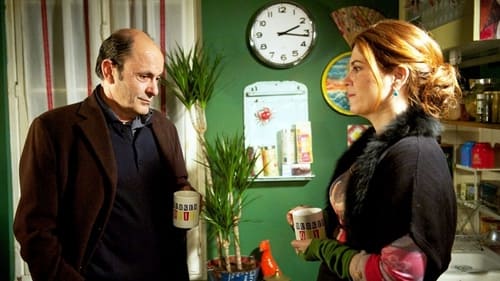
Director of Photography
Odile busca um apartamento novo e maior em Paris. Sua irmã mais nova, guia de turismo que acabou de completar sua tese de doutorado, apaixona-se pelo corretor de imóveis. As histórias se entrelaçam com diálogos citando letras de músicas.
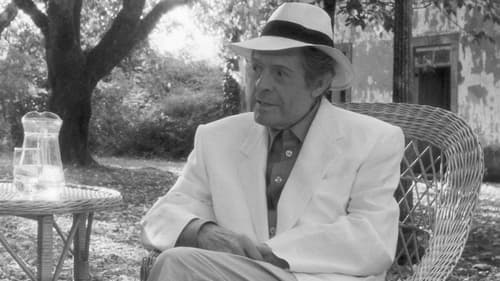
Self
In 1996, Marcello Mastroianni talks about life as an actor. It's an anecdotal and philosophical memoir, moving from topic to topic, fully conscious of a man "of a certain age" looking back. He tells stories about Fellini and De Sica's direction, of using irony in performances, of constantly working (an actor tries to find himself in characters). He's diffident about prizes, celebrates Rome and Paris, salutes Naples and its people. He answers the question, why make bad films; recalls his father and grandfather, carpenters, his mother, deaf in her old age, and his brother, a film editor; he's modest about his looks. In repose, time's swift passage holds Mastroianni inward gaze.
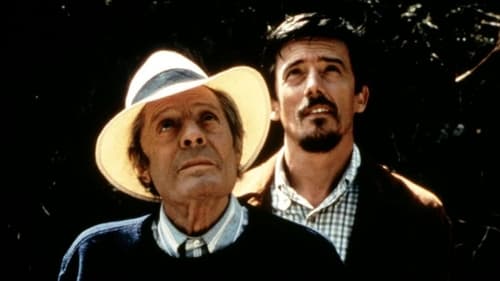
Director of Photography
Manoel is an aging film director who travels with the film crew through Portugal in search of the origins of Afonso, a famous French actor whose father emigrated from Portugal to France and in process remembers his own youth.

Director of Photography
This French language drama from Portuguese filmmaker Manoel de Oliveira takes an ironic look at the pretentiousness of international jet-setters while simultaneously examining an obsessive romantic relationship between an aging Lothario and a beautiful married woman. The tale begins at a garden party in a lovely villa in the Azores held by Rogerio and Leonor for handsome, middle-aged Michel and his mistress Irene, a noted Greek movie star. The guests aren't there long before an obvious attraction between Leonor and Michel prompts them to head for a private beach (their tryst, if there was one, occurs off-camera). Five years later, the foursome again meet for a garden party and once again they pair off after spending much time discussing gender differences, emotion, social insight and exchanging witty bon mots.

Director of Photography
In Japanese theater women's roles are traditionally played by men. The man playing the woman's role, the Onnagata, does not imitate the woman, as in the West, but tries to capture her significance. He need not stick close to his model, but draws far more from his own identity - a shift of value takes place, which is nonetheless not a step beyond. THE WRITTEN FACE is an attempt to offer an insight into the Japanese Kabuki star Tamasaburo Bando, one of the last defenders of this ancient and disappearing performing tradition.

Director of Photography
This French farce chronicles one special day in the lives of a married pair of Parisian architects, Fabienne and Bruno, as they anxiously await the results of an important architectual contest they have entered. Unable to handle the stress of waiting, both turn to sexual liason's to ease their tension. Bruno ends up enacting a dark sexual fantasy with a stranger while Fabienne eventually succumbs to the advances of Bruno's friend Simon, a fortyish Lebanese businessman and part-time drug dealer. The comedy takes on overtones of psycho-drama when the contest winner announced and the couple discovers the truth of each other's actions. A cache of drugs, discovered in an apartment only adds to their troubles.

Director of Photography
Kazuo Ohno, Father of the Butoh Dance, first appeared on stage at the age of 43. He left the stage only at the age of one hundred, three years before he died. This short dialogue less film presents the exceptional range of expressions that this Japanese dancer could achieve, both with makeup and costumes and without.

Director of Photography
Drama - This Israeli drama tells the story of three men living in Tel Aviv. They set off to attend a funeral. Unfortunately, they cannot find the right cemetery. Later the story shifts to their complex love lives. - Gabi Beniashvilly, Samuel Calderon, Helena Cherkasov

Director of Photography
A collaboration in which Robert Wilson and Heiner Müller let Molière die, imagine his death in tableaux with text passages recited by Müller himself. "Cinema watches Death at work." Wilson's actors watch Molière die: their vigil is hard work. Müller's comment: "The poem watches a dying man at work, his name is Molière. The poem is not a film. The film watches an actor playing a dying man called Molière."

Director of Photography
"Smoking" and "No Smoking" are two segments of the film which are based on closely connected plays. The original plays covered eight separate stories, which have been pared down to three each for these movies. At a certain point in the story of each segment, the five female characters (all played by Sabine Azema) and the four male characters (all played by Pierre Arditi) have their lives skillfully recapped in terms of "what might have happened" if they had made or failed to make certain choices. For example, "No Smoking" focuses chiefly on the relationship between the mild-mannered Miles Coombes and his infinitely more aggressive and ambitious wife, Rowena.
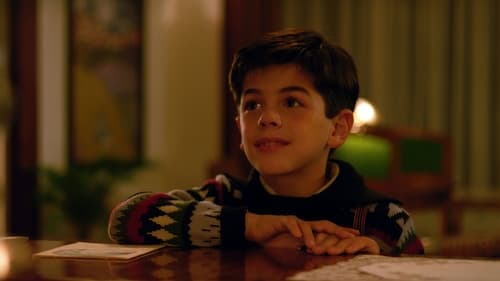
Director of Photography
The formerly great Swiss hotel which Valentin's family owned when he was a boy has been emptied and is about to be torn down. He revisits the magical site's empty halls and ballrooms.

Director of Photography
Frustrated with her life, a Parisian tells her philandering husband about her lover.

Director
Cannes Festival 1991
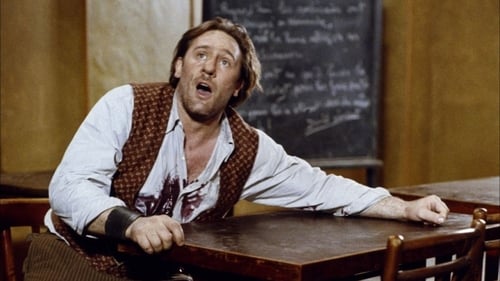
Director of Photography
After World War II, a small French village struggles to put the war behind as the controlling Communist Party tries to flush out Petain loyalists. The local bar owner, a simple man who likes to write poetry, who only wants to be left alone to do his job, becomes a target for Communist harassment as they try and locate a particular loyalist, and he pushes back.
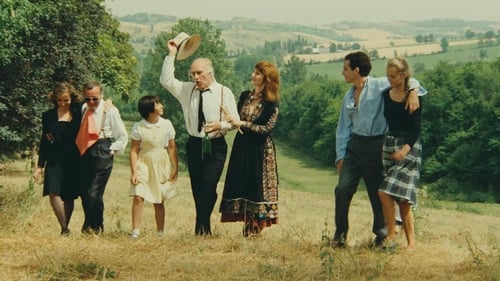
Director of Photography
No sul da França, uma família se reúne em sua propriedade no campo para o funeral da matriarca, ao mesmo tempo em que ocorrem as revoltas estudantis de 1968 em Paris. Mesmo com as notícias dos tumultos chegando pelo rádio, a família ainda se concentra em pequenas brigas e assuntos pessoais.
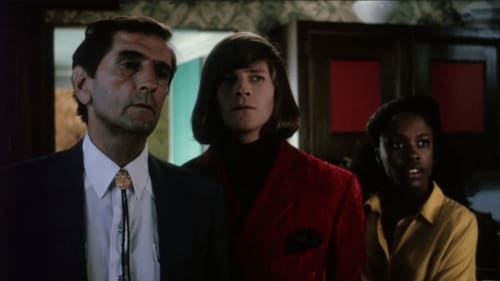
Director of Photography
Loucas e mimadas, Maureen e seu excêntrico irmão Howdy decidem rastrear e conhecer sua mãe distante, enquanto o drama de relacionamentos disfuncionais, condições climáticas desastrosas e um segredo familiar obscuro acontecem.

Director of Photography
Lovers Beatrice Dalle and Wadeck Stanczak can't quite cope with the situation when Dalle becomes pregnant. Stanczak fears that his future as an architect will be scuttled by any parental responsibilities. For her part, Dalle wants to keep the baby, but she also wants to keep Stanczak. Attempting to smooth the waters is the couple's mutual friend Francis Frappat. Chimere was the second feature-film project for director Claire Devers, who rose to prominence on the strength of her award-winning maiden effort Black and White.
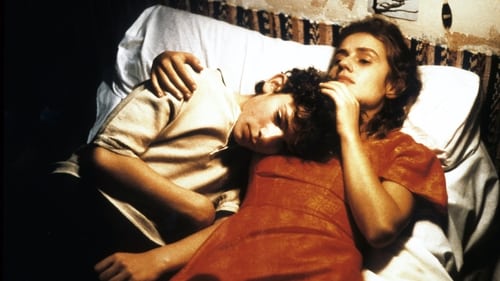
Director of Photography
Situado em Toulon, no litoral mediterrânico, o filme tece uma complexa teia de relações entre as personagens: uma jovem vinda do norte de França, o seu irmão surdo-mudo, um maestro de meia-idade e duas figuras opostas, ligadas ao maestro: o seu jovem amante árabe e o filho, ligado a grupos de extrema-direita.
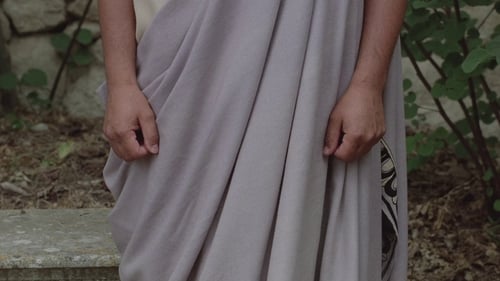
Director of Photography
Film adaptation by Straub and Huillet of Hölderlin's 1798 tragedy on the symbolic death of Empedoclus, the legislator in Ancient Greece.
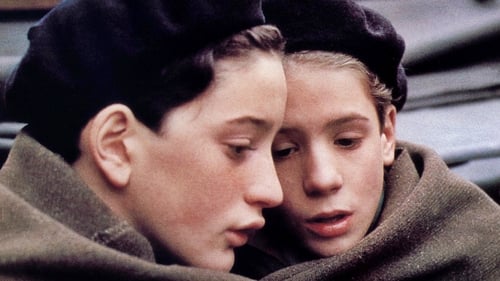
Director of Photography
Uma história comovente de amizade e perda devastadora sobre dois meninos que vivem na França ocupada pelos nazistas. Em um internato católico provincial, os jovens precoces conhecem a verdadeira camaradagem – até que um segredo é revelado.
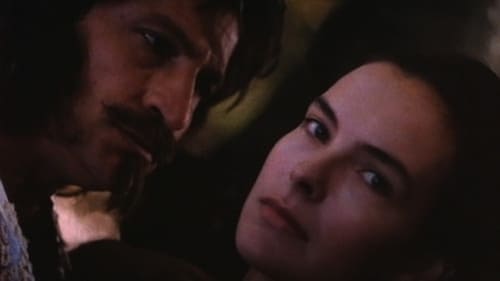
Director of Photography
A journalist is assigned to interview an eccentric anthropologist who has exhumed the skeleton of Jörg Jenatsch, a revered freedom fighter who was mysteriously murdered in 1639. Initially disinterested, the journalist begins to uncover unflattering truths about the national hero and experiences visions in which he seems to be witnessing events that transpired over 300 years ago. As he obsessively pursues the investigation, his personal life and his grip on reality disintegrate, drawing him relentlessly toward the fatal carnival at which Jenatsch was killed.
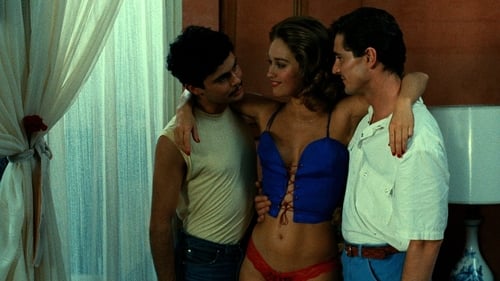
Director of Photography
Rosa la Rose is the most beautiful prostitute of Les Halles. Every client wants her and she accepts everything. Her pimp is a sympathetic and generous man and there is not much to tell about Rosa’s life. Until one day she meets Julien, a young guy, and falls in love with him. But will it be worthy to leave her life for a madness love?
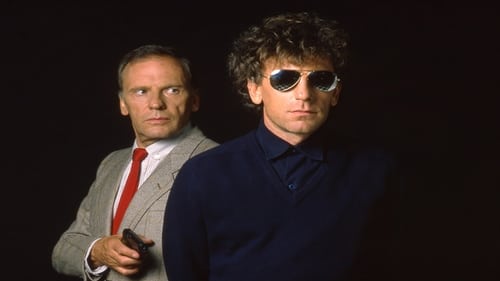
Director of Photography
After serving his sentence, a robber returns to his small, quiet hometown to retrieve the loot. But a ruthless Police inspector and his equally nasty young subordinate are after the criminal.

Director of Photography
In this adaptation of Wuthering Heights set in the south of France in the 1930s, Guillaume wars with his sister Catherine over her affections for their farmhand Roch, of whom he is jealous. A romantic choice, destined for tragic results.
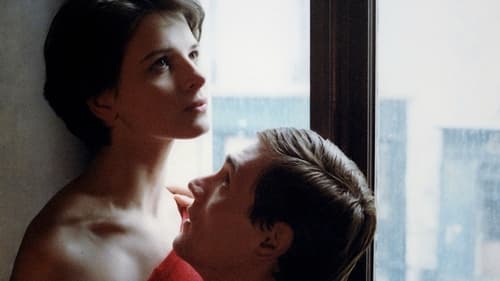
Director of Photography
Nina, young girl from the provinces discovering the capital, meets people by chance, and carries out apprenticeship of the theatre and love. Paulot first of all, reassuring figure of an ordinary man, solid as a rock. Then Quentin, a fallen actor tormented by a past drama, violent as lightning. Finally, Scrutzler, an inflexible and exhausted director who chooses Nina, throws her on the stage. A revelation is born through these three meetings. But, it is with herself that Nina has an appointment.
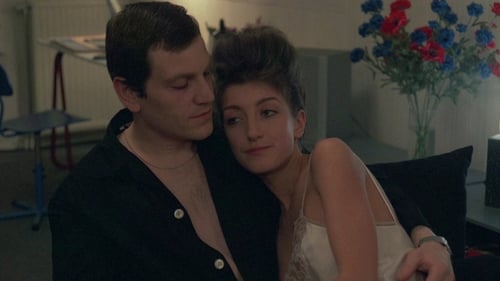
Director of Photography
Cansada dos subúrbios e do namorado bonzinho, a jovem decoradora de interiores Louise decide alugar um apartamento de forma independente em Paris, onde fica livre para explorar a vida de solteira. Mas isso também inclui lidar com os avanços do incansável amigo Octave.

Director of Photography
Memoirs of the Italian Opera by the singers and musicians of the Casa Verdi, Milan, the world’s first nursing home for retired opera singers, founded by composer Giuseppe Verdi in 1896. This documentary, which has achieved cult-like status among opera and music lovers, features former singers who reminisce about their careers and their past operatic roles.

Director of Photography
Document on the city of Le Havre. Luc Moullet sets out to show Le Havre not as a single city centered on its port, but as a multitude of neighborhoods and annexed communes, making Le Havre a city of rare diversity. Commentary by Luc Moullet, said by himself. First part of an aborted "Le Havre seen by ...".
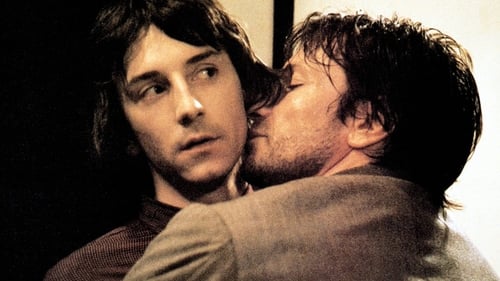
Director of Photography
Henri is a lonely, isolated young man who lets no one get close to him. He meets a street hustler and comes out of his shell, going 180 degrees into gay obsession. Though he has yet to physically approach the object of his affection, Henri builds up so much unrequited lust that it explodes with horrible results.

Director of Photography
A woman goes to Cannes and, lost in its chaos and unable to obtain tickets, ends up watching it on television from her hotel room.

Director of Photography
Portrait of filmmaker Douglas Sirk.

Director of Photography
Also known as “Letter from Venice,” Susan Sontag’s fourth and final film tells of a relationship that is fragmenting as the partners tour the decaying ruins of a hallucinatory Venice.
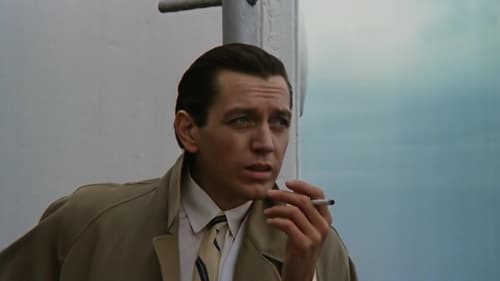
Director of Photography
Set amid the European community in an unspecified North African country, a colony on the verge of nationalism just before the war. And colonized is what happens to a French diplomat, Julien Rochelle, when he meets the mysterious beauty Clothilde de Watteville. Schmid 's favorite axiom, that love is projection, never had such a thorough airing. Is Clothilde really the wife of a French official now holed up in Siberia? Or is she Hecate, goddess of black magic and devourer of the Arab boys she meets far from the European quarter? Only our projections know for sure; for the rest, she is a "woman looking out into the night." Drawn from a novel by Paul Morand, who based the main character on his wife Helene, Schmid's film achieves an atmosphere of magic in which psychological credibility is not so much absent as irrelevant-a film that distances itself from the drama it invokes, perhaps as the elusive Clothilde turns her back on the madness she provokes.

Director of Photography
A “filmic re-reading” of Max Frisch's novella Montauk (1974) and of excerpts from his published diaries. It is neither a biographical portrait of Frisch – who was one of the greatest 20th century Swiss writers – nor a filmed adaptation of the novel. Instead, Dindo returns to the locations the author describes in his texts, searching for traces of past events that may turn out to have been more imagined than real.
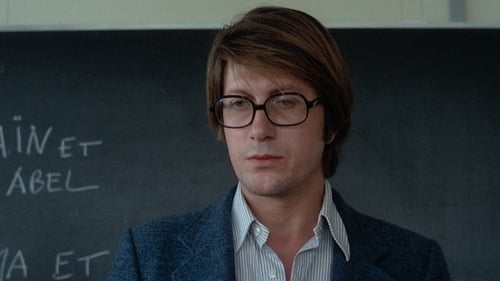
Director of Photography
O produtor de TV Paul leva a ex-namorada para conhecer a casa de campo que pretende alugar. Quando Isabelle, uma prostituta de quem Paul já foi cliente, surge no local, as histórias dos três se cruzam.
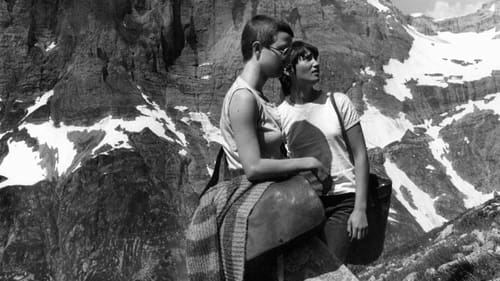
Director of Photography
Two young women from very different backgrounds journey into the countryside seeking respite from unsatisfactory lives and relationships, but ultimately find that there is no way back to the world they once knew.

Director of Photography
Voted for in the 2012 Sight & Sound poll

Director of Photography
Jacques Lemonnier of IBM France, Francois Dalle of L'Oreal and other ultrapowerful French moguls are surprisingly candid -- and cold-blooded -- as they discuss their attitudes about business in this startling 1978 documentary. After sounding off about unions, strikes, hierarchy and management, the subjects realized how callous they sounded and managed to convince the French government to suppress the film.

Director of Photography
The film is a sort of presentation of Franco Fortini's book 'I Cani del Sinai'. Fortini, an Italian Jew, reads excerpts from the book about his alienation from Judaism and from the social relations around him, the rise of Fascism in Italy, the anti-Arab attitude of European culture. The images, mostly a series of Italian landscape shots, provide a backdrop that highlights the meaning of the text. - Fabrizio Sabidussi
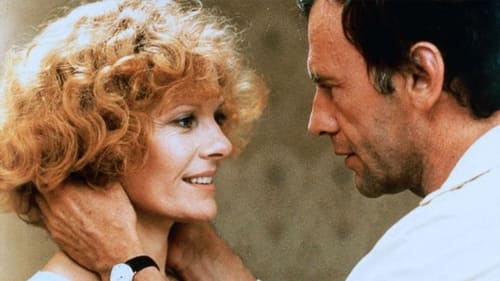
Director of Photography
After 10 years separation from his wife, a film director (Jean-Louis Trintignant), imagines he can make up with her by giving her a part in his next film, an adaptation of Tshekov's "Three Sisters". He goes location scouting and stays in Bex, a Spa near Lake Leman, together with the three actresses : Julie, his ex-wife (Delphine Seyrig), the mysterious Cecilia, that his producer wants him to take (Lea Massari), and Esther (Valérie Mairesse), a teenager. They all stay in an old decaying hotel. In this isolated mansion the four of them will fight but also discover each other.

Director of Photography
Two sisters, Camille and Madeleine, make up the story of a woman: Alice Constant, the servant of their grandfather who committed suicide at the age of 25.
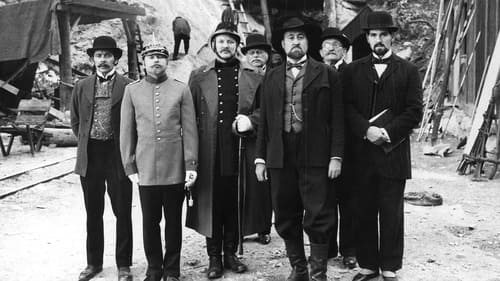
Director of Photography
In this docudrama, the real star is a railroad tunnel. First built, at the instigation of a banker and an engineer, in 1872 under appalling conditions, it was widened to accommodate automobiles in 1972. The tunnel links the Rhineland in Germany with Italy and goes through the Swiss mountains. The many lives lost in the building of the first tunnel were considered to be one of the costs for economic progress. In one re-enactment, a strike for better conditions is severely dealt with by the military. Even in 1972, though working conditions were better, most of the men working on the tunnel were poor immigrant workers, with almost no power to negotiate better treatment.

Director of Photography
A 17-year-old high school student, Jenny Kern, is found dead from cold and exhaustion in the suburbs of Lausanne, Switzerland.

Director of Photography
In Lausanne, Léon is involved by accident with a small Leninist group and gets to know Léa, a dedicated activist and the group leader's mistress. The police keep a close watch on them and trouble is bound to follow.

Director of Photography
Michel Contat is Emeritus Director of Research at the CNRS, ITEM/CNRS/ENS and a specialist of Jean-Paul Sartre whose novels and theater he has edited in the Pléiade edition and about whom he has written several books. With Alexander Astruc, he made the film Sartre par lui-même (1976) and, with Antoine Burnier, co-wrote the script of Claude Garretta’s TV film Sartre, L’Age des passions (2006). As a journalist, Contat contributed literary columns for Le Monde since 1978, and as an amateur musician, he was the jazz columnist for the magazine Télérama. His most recent books are Pour Sartre (2006) and André Gorz; vers la société libérée (2009).
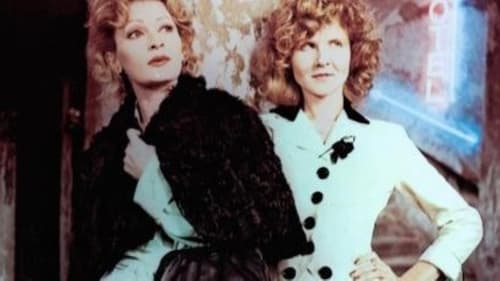
Director of Photography
Beautiful, detached, laconic, consumptive Lily Brest is a streetwalker with few clients. She loves her idle boyfriend Raoul who gambles away what little she earns. The town's power broker, called the rich Jew, discovers she is a good listener, so she's soon busy. Raoul imagines grotesque sex scenes between Lily and the Jew; he leaves her for a man. Her parents, a bitter Fascist who is a cabaret singer in drag and her wheelchair-bound mother, offer no refuge. Even though all have a philosophical bent, the other whores reject Lily because she tolerates everyone, including men. She tires of her lonely life and looks for a way out. Even that act serves the local corrupt powers.

Director of Photography
At the end of the 19th century, an educated white-collar worker finds himself in the employ of an inventor. As he is neither a "worker" nor an "owner," his position in the inventor's household and in the world at large is equivocal. Despite the difficulties he encounters, he tries to hold onto his job in order to support his family, but is eventually fired. This Swiss movie is based on a novel written around 1900 by Robert Walser.

Director of Photography
A look at the lives of several men and women in their 30s as they confront the slim gains of the "revolutionary" sixties. Max, a dissatisfied copy editor; Myriam, a redhead into tantric sex; and Marie, a supermarket checker who gives unauthorized discounts to the elderly, search for renewed meaning on a communal farm. The title character, a six-year-old child, is the carrier of their hopes for the future.

Director of Photography
A familiar Biblical tale transformed into a cinematic opera of seemingly endless possibility. In expressive, melodic tones, the fraternal pair debate God’s true message and intent for His creations, a conflict that leads their followers towards chaos and sin. Set almost entirely within a Roman amphitheater whose history lends every precise line-reading and gesture, every startling camera move and cut, a totalizing force.

Director of Photography
Based on H.P. Lovecraft's The Shadow Out of Time, this is the story of a professor who suffers a seizure which results in total amnesia. As he recuperates he is so different his family deserts him. He gathers knowledge of things outside his specialty for five years, then has another seizure. When he reawakens he is himself again, but now he has no memory of the five years between the attacks. He begins having bizarre dreams, and tries to find out what he was doing during the five years he can't remember. What he discovers, combined with the growing reality of his dreams, convinces him that something much darker than a mere personality shift was going on.
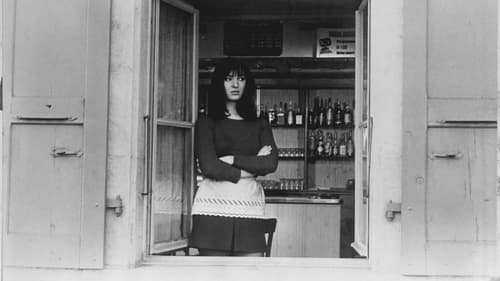
Director of Photography
Paul is married, a successful engineer, and a conservative candidate in an upcoming local election. He falls in love with Adriana, a café waitress from Italy. Paul's party is very critical of foreign labour and wants to keep Switzerland to the Swiss. Where Paul falls deeper and deeper into the relationship and is ready to leave his wife, Adriana feels the social pressure growing and has to make her own decision.

Director of Photography
Nightclub singer La Paloma succumbs to the persistent courting of a chubby rich admirer and marries him. Before the marriage, she was thought to be dying, but soon she is well. She believes her husband's love has cured her, but her efforts to love him begin to fade as she discovers true love with her husband's old school friend.

Director of Photography
A manufacturer of furniture sees his business go down and decides to rob banks to pay his staff. Het gets romantically involved with one of his victims.

Director of Photography
This is a small, intense film based on Schoenberg’s opus of the same name with the subtitle “danger, fear, catastrophe”. It deals with emerging fascism and the persecution of Jews, as well as with their historical continuities.
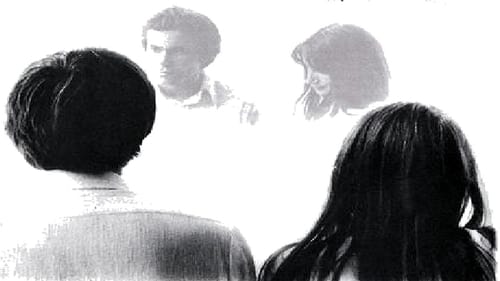
Director of Photography
An ode to liberated speech and to the power of words, "those one speaks to others, those one speaks in silence", Alain Tanner's third film is inspired by a poet and a poetic text which deeply affected him as a young director.

Director of Photography
Satire on 19th-century class relations and thinly veiled commentary on the failure of the 1968 political revolution.

Director of Photography
With the help of his assistant Anja, Ottocaro Weiss intends to put the plague on stage: circumstances beyond his control and a lack of fresh talent have forced him to close down his flea circus. For Weiss, the plague means the «extinction of everything that makes life miserable and low and freedom along with it. Unbeknownst to him, he has won the support of a patron who is of the exact opposite opinion: for Johannes Wagner, the plague is an organising principle, and, aided by his agent Moosbrugger, he is able to smuggle a new number onto the programme. Whereas Ottocaro Weiss means to represent the plague theatrically, what appears on stage is the scientific reality of the rat-borne infestation.
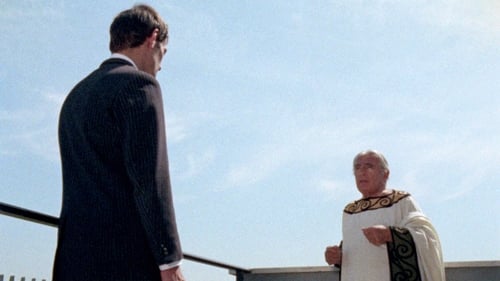
Director of Photography
Set in contemporary Rome, the film shows through a series of encounters with “ancient” Romans, how the economic and political manipulation by ancient Roman society led to Caesar’s dictatorship. - British Film Institute
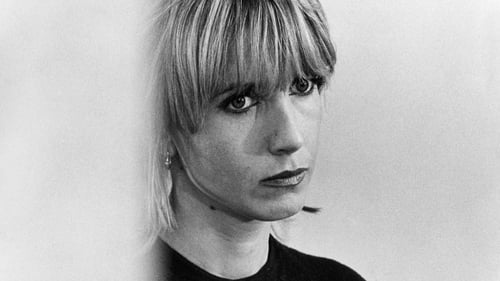
Director of Photography
Two men, arty though somewhat staid, are drawn to the spirited and quixotic Rosemonde....

Director of Photography
Straub-Huillet’s first color film, adapts a lesser-known Corneille tragedy from 1664, which in turn was based on an episode of imperial court intrigue chronicled in Tacitus’s Histories. The costuming is classical, and the toga-clad, nonprofessional cast performs the drama’s original French text amid the ruins of Rome’s Palatine Hill while the noise of contemporary urban life hums in the background. Their lines are executed with a terrific flatness and frequently through heavy accents; the language in Othon becomes not merely an expression but a thing itself, an element whose plainness here alerts us to qualities of the work that might otherwise be subordinated.

Director of Photography
No 100º aniversário da fundação de uma empresa de relógios de pulso em Genebra, o proprietário Charles Dé despista sua família e se muda com um jovem casal que conhece por acaso, cozinhando, lendo, bebendo e discutindo filosofia com eles.

Cinematography
Is a classic but biting description of the city Lausanne seen from the inside in its imagination and its history by a native.
